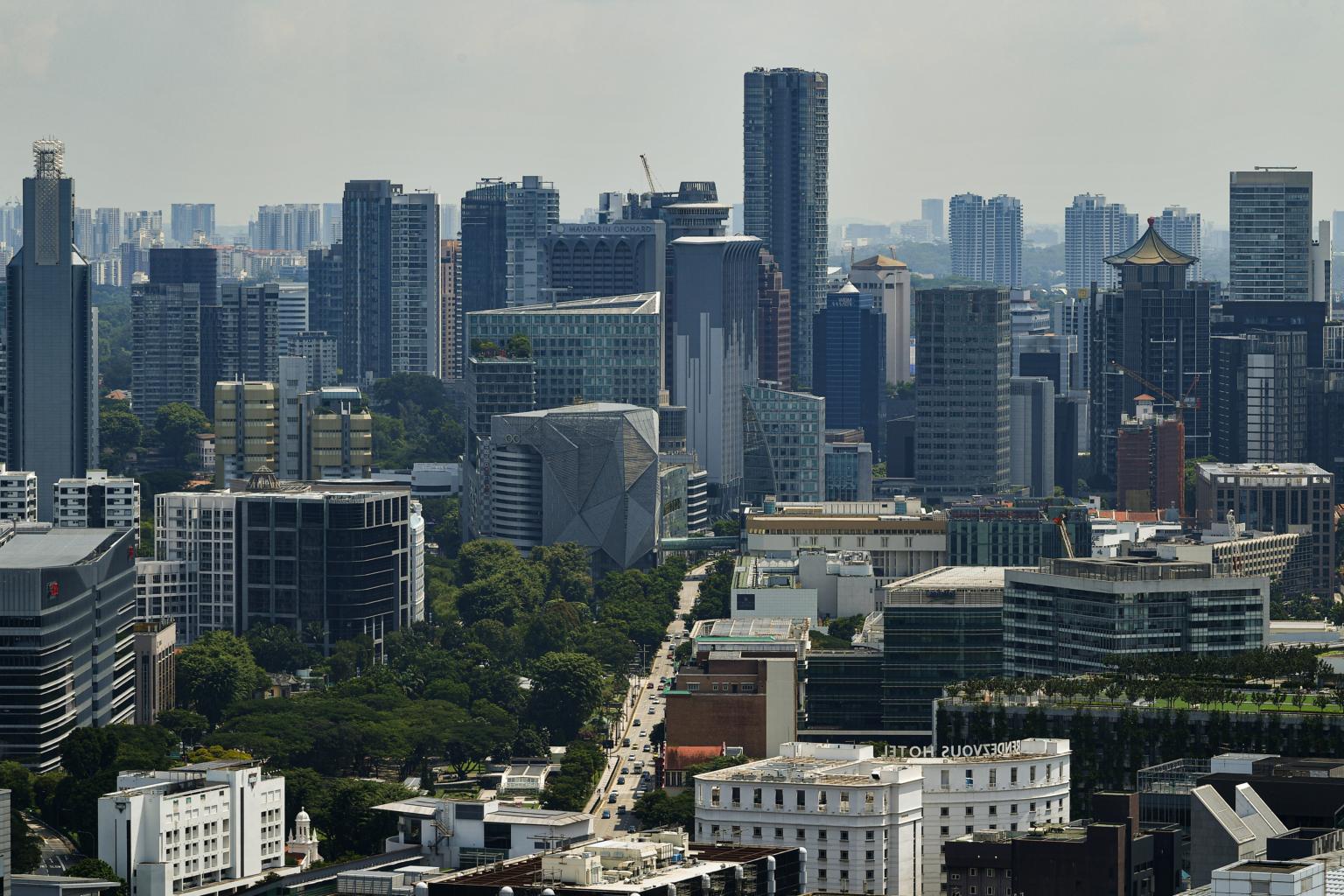Singapore Reits double their overseas investment to $16.6 billion
Sign up now: Get ST's newsletters delivered to your inbox

The overseas growth fervour is unlikely to dim.
ST PHOTO: LIM YAOHUI
Follow topic:
SINGAPORE (BLOOMBERG) - Singapore's property managers are accelerating their push abroad as a slow reopening and diminishing returns at home force them to look for growth opportunities elsewhere.
Foreign acquisitions by real estate investment trusts (Reits) in the city-state jumped to an all-time high of 61 last year, data compiled by Bloomberg shows. The total value of such deals also more than doubled from 2020 to US$12.3 billion (S$16.6 billion).
Property managers in Singapore - which boasts the most Reits in Asia outside of Japan - have long shown global ambitions, with overseas investments picking up during the pandemic. But a limited reopening, coupled with an anticipated Omicron surge, is adding impetus to this drive, even as investor concerns over a slowing recovery grow.
"Singapore's commercial Reits may continue to rely on overseas M&A (mergers and acquisitions) to achieve income growth in 2022, especially if Omicron brings more uncertainty on further easing of social and travelling curbs to boost retail and office leasing demand in the country," said Bloomberg Intelligence analyst Patrick Wong.
A US$3.1 billion merger of Mapletree Commercial Trust with Mapletree North Asia Commercial Trust proposed last month is the latest in a series of moves that has seen managers long comfortable with a domestic presence favour a more global footprint. Also in December, another Reit targeting retail outlets in Singapore, CapitaLand Integrated Commercial Trust, made a foray into its second overseas market with office acquisitions in Australia.
Investors like the stability a local focus can offer, Ms Sharon Lim, chief executive officer of the manager of Mapletree Commercial, told reporters last month, but her trust needs to be better placed to take on new opportunities overseas and achieve "meaningful long-term expansion".
Ms Lim's Reit, which she described as the "last of the Mohicans" with only Singapore-centric assets, will see its domestic holdings shrink to 51 per cent within the new merged entity.
Increased risks
Overseas diversification may alienate some investors, however, with Mapletree Commercial's shares having declined more than 8 per cent since the merger was announced.
"Investors whose mandate demands only Singapore exposure may look at other counters," Jefferies Financial Group senior analyst Krishna Guha said, adding that execution and foreign exchange risks may rise.
Still, while Singapore Tourism Board CEO Keith Tan has warned that a full recovery in visitor numbers is unlikely until 2025, a reopening dividend might yet emerge. Officials in the financial centre have affirmed their determination to live with the virus and keep its borders open, while easing some restrictions, including allowing some workers back into offices.
Singapore's latest property investment manager CapitaLand Investment - a spin-off of one of the country's largest developers - said it will remain committed to local investments despite a growing foreign portfolio.
Singapore will continue to be a "core market" and is attracting strong interest from wealthy individuals, including a growing number of family offices, said CapitaLand Investment group CEO Lee Chee Koon in an e-mailed response to questions about its plans. "But given the physical growth constraints, the relative size of our Singapore business within our portfolio will become smaller over time as we expand and deepen our interests in overseas markets."
Investors have validated this strategy so far, with CapitaLand Investment emerging as the second-best performer on the benchmark Straits Times Index since its trading debut in September last year, having advanced by more than 21 per cent.
The overseas growth fervour is unlikely to dim. A limited pool of good quality assets and increasing competition from global funds have also pushed yields lower, said Mr Vijay Natarajan, a real estate analyst at RHB Research Institute. CapitaLand's Mr Lee also expects stronger Asian-based competition to emerge over time.
Mr Natarajan said deep liquidity pools in overseas markets like Britain, the United States and Australia, as well as more alluring freehold and longer lease terms, will maintain the draw of markets abroad.
"We expect this trend of overseas acquisitions to continue," he added.

